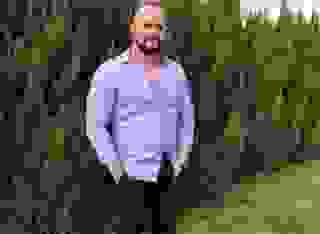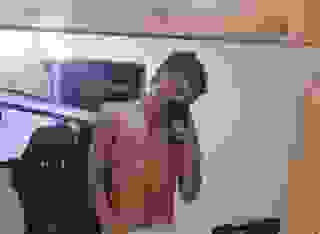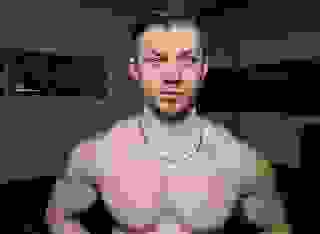- Gay Male
- After the End Ch. 13
Note: You can change font size, font face, and turn on dark mode by clicking the "A" icon tab in the Story Info Box.
You can temporarily switch back to a Classic Literotica® experience during our ongoing public Beta testing. Please consider leaving feedback on issues you experience or suggest improvements.
Click hereAuthor's note:
Welcome to the first chapter of After the End - Part 3, the final novel in my dystopian erotic romance trilogy. If you enjoy intensely provocative sex with a power play twist, handsome male heroes in emotionally satisfying relationships, and unconventional happily ever afters -- you are in the right place! These books are full-length, publication-quality, and currently being offered free of charge for your entertainment. :)
Descriptions of each book can be found in my bio by clicking my user name. Feel free to drop in on specific chapters or sections based on your mood or interest, but the dramatic tension is strongest if you start from the beginning of Part 1. As always, I appreciate hearing your reactions and feedback. It truly does help me create the best stories that I can for readers to enjoy.
Content warning: This chapter includes depictions of the threat of armed conflict and physical danger.
Tags for this chapter include: #bisexual male, #dystopia, #novel, #romantic, #married, #teasing, #orgasm denial, #submission, #male submissive, #friends
_______________
Julian:
The rumors had started weeks ago: aggression from the west, in the civilization-depleted lands along what was technically still the Texas-Louisiana border. Reports of rifle-toting raiders and join-or-die demands followed plodding wagons down grass-grown corridors that used to be highways. At trading outposts dotting the region's distinctive savanna forests, stories were exchanged along with dry goods: attacks on the small rural settlements scratching a livelihood among ruined cities and storm-ravaged wilderness. Attacks that were steadily drawing nearer to the farming collective that supplied nearly half our community's food.
What happened in the rest of Louisiana, or in the rest of the world for that matter, wasn't my concern. Not like in my former life in the Army, when I commanded security operations for the West Coast branch of the United States government. I'd studied analyst reports from anywhere we could obtain intelligence -- a painstaking process in this era of greed-triggered scarcity -- to map the probability of threats to key federal assets across millions of square miles. Of course, in the end, I lost my stomach for what I discovered my true objective was, once I'd been promoted high enough: Security, but not for the civilian population. Security for the extravagantly wealthy, for those who ruled instead of worked -- my family, for example. Security in the form of shooting starving citizens who tried to stop armored supply convoys delivering food into heavily-guarded compounds that already stored plenty.
Those who rule by force respond only to force. I tried reason. I tried reform. But it came down to open rebellion -- war between the soldiers who joined my cause and those who backed my father and the establishment. I used every tactic I'd learned at the top command school on the continent, and I sacrificed the lives of a haunting number of brave service members, and still I accomplished nothing.
Which is how I ended up here, in the uplands of Louisiana, the place I'd calculated offered the best opportunity for survival with the least probability of detection. Since my flight from the military, my domain has been much more modest: this isolated settlement of two thousand people within one of the old federally-protected forests. I'd helped establish Fort Laurel soon after I joined this community four years ago, shepherding them through one of the endless territorial clashes that defined life after fossil fuels. Maybe they would have found a way to fight off their pursuers without me. They didn't seem to think so.
This new existential threat was growing more dire with every passing late-spring day. According to my local informants, the militia advancing toward our agricultural allies in the river valley originated from East Texas strongholds established generations ago. When the federal government could no longer afford to keep pulling families from the wreckage of endless famines and fires and floods, it had abandoned the Gulf Coast and much of the American interior. State governments had bankrupted long prior. The resulting power vacuum left the land wide open for civilians who'd been hoarding guns and nurturing violent beliefs for decades. Some residents welcomed the restoration of order, even if they'd lost the freedom to decide how to spend their time or to disagree with fanatical dogma. Others resisted and were gunned down by M240s mounted on lifted pickup trucks, homemade flags streaming proudly above their tailpipes.
Though it was rare anymore to find privately-owned motor vehicles that could still be made to operate, the Lone Star Defense Force, as they styled themselves, had managed to cross the Sabine River with alarming firepower. The drastic population drop in the mid twenty-first century had simply served to increase the number of available weapons per capita in this gun-saturated country. We could only guess at LSDF's motives for expansion; most likely, their own food sources were suffering from drought or blight or infestation or any of the numerous other unfavorable conditions that struck so readily in our harshened climate. Without long-distance travel, reliable electricity, or industrial production, nourishment was limited to what the local community could grow, forage, hunt, preserve -- or steal. If LSDF took control of the fertile farmlands we relied on, not only would starvation loom as a genuine threat, but there'd be little to stop them from striking at Fort Laurel itself.
Yesterday, my scouts brought the dangerous news that LSDF had rolled over our main rivals in the region: Red River Crew, whose primary commodity was human labor. They were ruthless fighters who had pushed our community off the previous site at Sabine Ridge. We'd barely managed to keep them at bay even after ceding the lands they'd originally demanded, yet according to survivor accounts, the battle a couple of days ago hadn't even been costly for the approaching army.
Fort Laurel's governing council had met in emergency session for hours this evening, comparing reports and debating possible responses. As always, my expert advice -- and my authority as commander of the fort's armed guard -- was weighted heavily. They'd eventually agreed to the only realistic course of action: take our fighters to Red River, some twenty miles west, and try to hold the last bridge between LSDF and our allies. Our cooperative agreement with the farmers required us to defend them in the event of armed aggression. After three years of eating their laboriously-produced sweet potatoes, onions, and Brussels sprouts, we didn't have the option of leaving their fields unprotected.
When we finally adjourned for a short night's rest, I walked with Avery to our single-room quarters in one of the settlement's purpose-built residential buildings. He and I had been together since my first summer in Louisiana, and in September we'd be celebrating our third marriage anniversary. Provided we both lived that long.
"Every fucking few years," Avery fumed, angry strides matching mine even though my legs were slightly longer. "If it's not a damn hurricane or an epidemic, it's someone trying to steal our workers, or our land, or our food. Is there seriously not enough goddamn land for them to feed their fucking selves? Who the hell thinks it's ok to just walk in and start murdering people?"
Even for him, this was an excessive use of profanity, which indicated serious stress.
"I wish I knew, babe," I told him. "If I'd figured out how to make anyone care about human suffering, I'd be back in Oregon saving lives en masse, rather than out here scrambling to defend a few thousand settlers."
"Well obviously I wouldn't want you to be in Oregon." He glared down the path, as if the LSDF invaders were waiting beyond the mingled hardwood and canvas buildings that housed our neighbors. "But I'm sick of having to constantly fight just to be able to eat. We're not harming anyone. The farmers aren't harming anyone. We're just trying to stay alive on our own land, for fuck's sake."
I didn't disagree with him at all. Despite the fact that I'd been groomed for military high command since birth -- to follow in the footsteps of my father, grandfather, and great-grandfather, who had all been generals -- I'd never really come to terms with the need to kill in order to survive. But the question of who had property rights was a bit thornier.
"Technically...it's not our land," I felt compelled to remind him. "If this entire hemisphere hadn't been stolen in the first place, hardly any of us would be here." I traced my heritage back to Greece and Italy; Avery traced his to the Philippines and somewhere in northern Europe. His father hadn't stuck around long enough for Avery to find out where his ancestors hailed from.
"Really? That's what you want to argue about? We could be killed tomorrow, and you're wasting time pointing out a basic fact of American history?"
"I'm just saying that in a society where the idea of earth possession even exists, there really are no rights of ownership other than those enforced by violence."
"Please do me a favor," he retorted, "and save your philosophy lecture for another time. Like when I don't have to go to war in a few hours." We'd reached our room, and he turned the lock with considerably more force than usual.
"That point falls under the discipline of ethics, not philosophy," I noted, dropping my pack on the bench by the door, just as he switched on the lamp above the bed. The low light revealed his handsome form and striking features, currently directing an annoyed glare at me.
"But yes, I understand what you're saying," I went on, this time in a more soothing tone. I stepped over and laid my hands at his sinewy shoulders. "I don't like this any more than you do. If there's an opportunity to negotiate with them tomorrow, we'll certainly try."
Avery sighed, the annoyance draining out, but when his rich mahogany gaze lifted to mine again, the tender emotions beneath had surfaced: Fear, for my safety more than for his own, probably. Genuine sadness, his compassionate heart grieving over the cruelty we faced so often. And the ever-present gentle glow of his love for me, symbolized by the leather necklace at his throat -- the one he'd worn every day since I gave it to him along with my promise of devoted partnership. Its mate encircled my neck.
I pulled him into a hug, stroking a hand over the knotted tension in his back until it started to loosen. His lean body was more slender in build than mine but just as muscle-hardened, and I suspected his capacity to carry strength was still growing. He'd only turned twenty-seven last week, the age I'd been when we met. It seemed significant to him for some reason; maybe because he'd been so convinced of my innate superiority back then. I hadn't very successfully persuaded him that comparing himself to me was a useless exercise when we'd been born into vastly different universes, particularly when I possessed an extra four and a half years of life experience. Maybe he was starting to understand how much of an advantage that had been.
"I'm sorry this is happening, babe," I murmured beside his thick, wavy locks. "I wish things were different." So many things, stretching back hundreds of years. Sometimes I comforted myself by imagining this was all some sort of cosmic joke. A guidebook the gods were writing for future attempts at progeny: How Not to Fail Utterly as an Intelligent Species. I wasn't at all sure humanity deserved to outlive the millions of other life forms already extinct on our planet.
Avery exhaled again but didn't move from the shelter of my embrace. "Yeah. Me too."
"Whatever the outcome, we'll get through it," I attempted to reassure myself as much as him, but I knew it to be a meaningless platitude. If anything happened to him, I could make no guarantees about my welfare. And he very likely felt the same way.
He didn't argue, though. Fate had flipped a coin for our lives on many occasions, and we hadn't lost a toss yet. It was easier not to verbalize the risk, to keep ourselves cloaked in the fantasy of invincibility. Outwardly, at least.
"Let's go to bed, ok?" I encouraged. Sleep is most often elusive on the eve of battle, but resting is eighty percent as restorative, and we were likely to need every scrap of endurance we could muster tomorrow. The smart soldier didn't squander strength that could make the difference between killing and being killed.
We stripped down to our trunks and climbed under the sheet, folding our light cotton blanket out of the way. On the cusp of June, it was nearly as warm as it would be at mid-summer. Avery didn't need my constant physical contact as much as he used to, now that he'd had a few years to indulge himself, but neither of us wanted any distance tonight. He nestled his shoulder blades against my chest and the back of his hand against my palm, and I laced my fingers through his. I breathed gratefully the sweet, signature perfume wafting from the skin at his neck.
We lay quietly in the humid dark as the minutes slipped toward dawn, waiting in that enchanted, fertile space where the decisive events of the future are anticipated but not yet realized -- when anything can still come to pass. There was nothing we needed to discuss. We'd shared our last words long ago, the first time we'd faced imminent danger as committed partners. I'd whispered to him all the things that mattered most deeply: How much I adored him, and how proud I would always be to have known him, if his life was cut short. How he could never truly lose me, because my love would always remain with him, even if I were gone. How it wouldn't matter if fate chose to separate us at a moment when we'd been arguing or unhappy. Whatever the circumstances, he could always know that my last thoughts of him would be the brightest and most beautiful of all our memories.
So I held him, and from time to time my thumb caressed his hand, and at some point when we could sense the sun nearing the horizon, he turned and wanted me. We kissed with passion but without urgency, and we reached for each other with confident familiarity -- not because we felt any lack, but simply to share the abundant pleasure of our intimacy. Sexual congress born of an absolutely secure connection.
"I love you, Julian," he whispered afterward.
"I love you." I'd spoken the words to him hundreds of times, yet they hadn't lost any of their significance. I only prayed it wouldn't be the last time we lay together in this bed sharing afterglow and affirmations.
Our company set out just as the sun's rim surfaced, visible only as an indistinct gleam through the thickly layered tree trunks behind us. When we could, we followed long-disused roads through the hills and wetlands, which at least were level, if now overtaken by star-leaved sweetgums and soft-needled pines. As we trekked further from our home, explosives and heavy weapons strapped to our backs and supplies carried by sturdy mules, our troops lapsed into silence as ordered. We couldn't know for sure whether our enemies had moved since the last report, and I wouldn't risk giving them early warning of our presence on the field. We passed oak and cypress groves adorned with grey-green Spanish moss or purple wisteria vines, the sunny day broken only by the thud of our feet, the buzzing of insects, and birds calling in their native tongues.
We'd crossed most of the couple dozen miles to the river when one of our flanking scouts came running through the longleaf pines to the north.
"Someone's up there," Sawyer told me in an urgent undertone when she got close enough. "Dozens, at least, marching down old route 71, about five clicks away. They're in full uniform, military dress. And there are two vehicles following the troops. Like jeeps, maybe." The last sentences were tinged with amazement -- understandably so. The last time I'd seen a vehicle larger than an ATV actually operating was long before I'd reached the South. Many residents of Fort Laurel had never seen one.
"Military," I repeated, trying to make sense of it. The U.S. military hadn't been deployed to the Gulf states since before I was born. Who would be wearing uniforms that looked military to Sawyer? Private militias commonly outfitted in surplus they'd bought before the collapse or acquired as veterans, but there wasn't usually enough matching gear to go around. And the jeeps were a profound mystery.
Could LSDF have slipped around and crossed the river by boat? Were they coming south to trap us against a main force crossing the bridge ahead? Or was their main force marching north ahead of us, where they would catch our allies defenseless? I cursed my lack of information. The U.S. government made very sure the military had the best technology still available in the post-digital age, at any necessary cost. Without their privileged access to rare metals, plastic components, and manufacturing equipment, my efforts were severely hamstrung.
Of course, being far from any reliable communication network was also the linchpin of my strategy for remaining undetected by that same government. Whether I was actually being sought for treason or desertion was somewhat of a grey area, but I hadn't waited to find out. I couldn't imagine a scenario in which the leader of an unsuccessful insurrection wouldn't be imprisoned for life, if not executed. I'd cut all contact when I fled five years ago with Maurice and Iris, my closest surviving collaborators. Even seeking information about my status might have attracted dangerous attention. We'd had no news except what distant rumor carried across the vast intervening mountains and prairies, and no need for any. All hope of making changes to the political structure had failed along with my war.
"Pick up the pace, but keep it silent," I ordered my lieutenants, one of whom was Avery. "Get to the highway and set up an ambush before they spot us. And find out immediately if the bridge is already held!"
Sawyer took a couple of others and went sprinting toward the remains of the small river crossing town that had once been home to perhaps as many residents as Fort Laurel. Wind, rain, and fire had reduced the homes and businesses mostly to broken, windowless shells.
We closed the last mile and a half and took up positions along the overgrown road that followed the river's slanting course on this side. Running parallel beyond the opposite bank was the ancient route from the city of Shreveport up on interstate 20, through the capital seat at Baton Rouge, to the drowned legend of New Orleans. We hunkered behind half-crumbled walls in thickets that used to be parking lots, rifle scopes and binoculars trained up the tunnel where cracked concrete still kept the trees at bay.
While we waited, Sawyer returned with welcome word. "No one at the bridge, Delta," she reported, using the only name I'd given publicly since leaving the West. "No sign of movement between here and there."
At least we weren't about to take fire from two directions. But that only made the unknown company's presence more of a puzzle.
Soon they came into view, a thousand meters out. Stunned, I took a second look through my lens, then a third. Sawyer was right. This was no local band of marauders. These were authentic soldiers of the U.S. armed forces.
Heart rate accelerating, I sorted quickly through possible plans. After the collapse, it had no longer been logistically practical to maintain six separate military branches, especially since advanced technology combined with the short leash of a changed climate had eliminated many of the original specialized functions. Not to mention that population levels couldn't support nearly the same sized standing army. Service members and equipment had been redistributed and units reconfigured. This unit's insignia showed them to be part of a regiment that had been based in California, last I'd known. Surely they wouldn't have sent forces all the way into the Deep South just to track me down?







